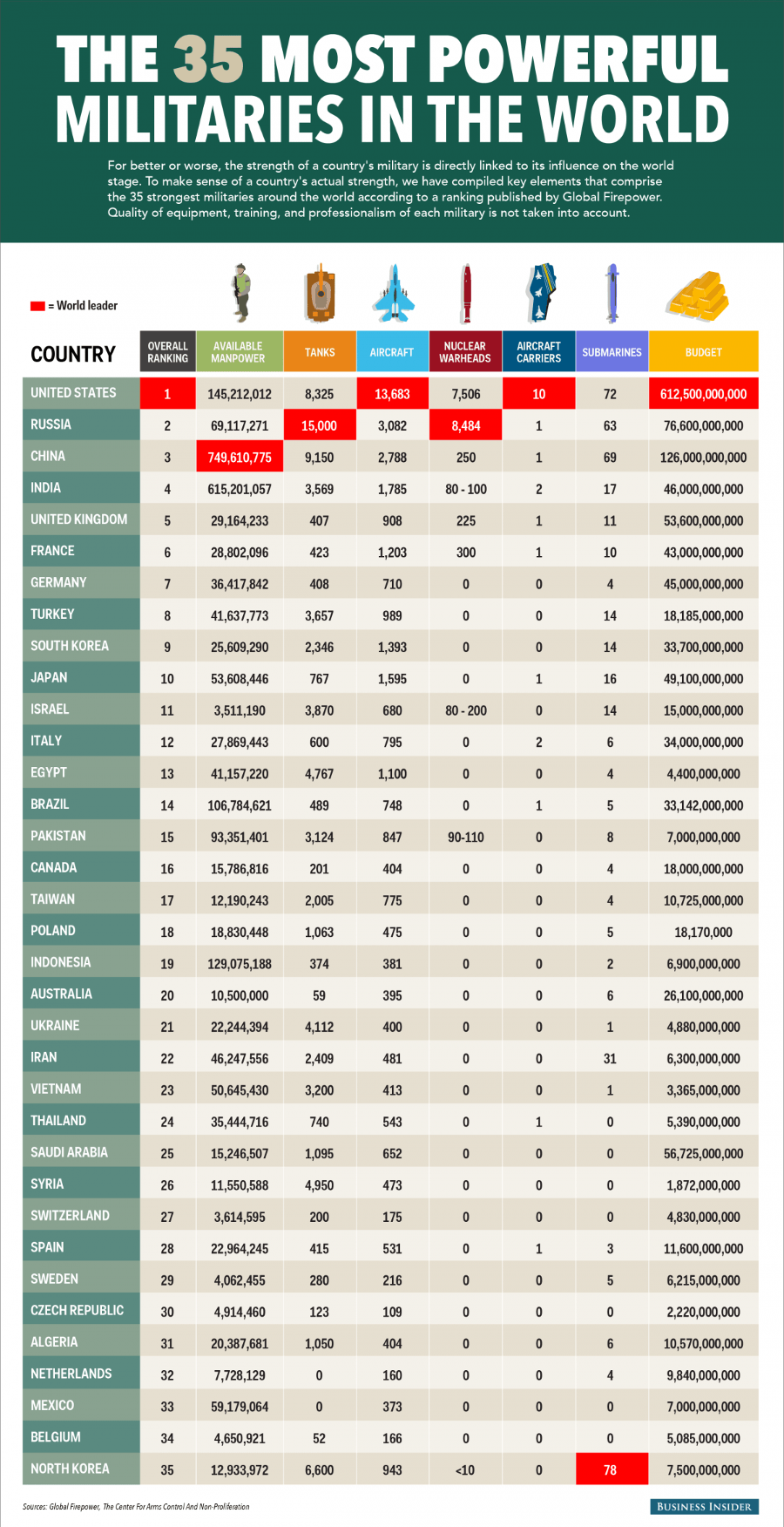22 March 2022
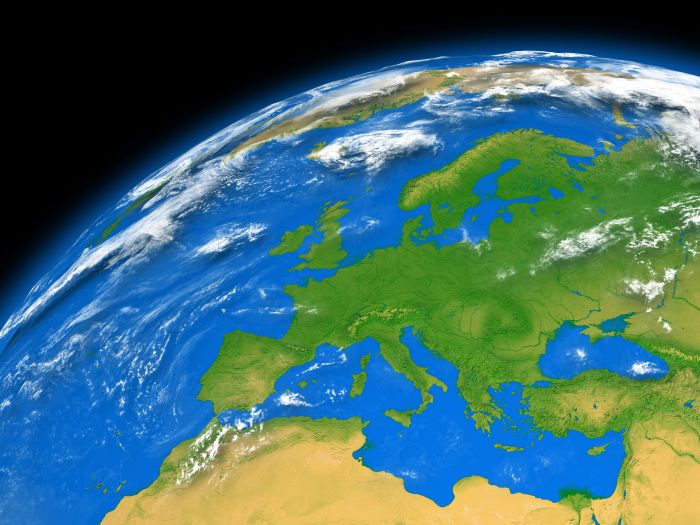
Russia is unmistakably the largest country in the world, covering over 17 million square kilometres and encompassing more than one-eighth of Earth's inhabited land area. But is size alone enough to make it a great country? What does the wealth of the nation and its salaries say about the power of Russia in comparison to the rest of Europe?
Geography
- Russia covers over 17,125,191 km2
- It spans 11 different time zones across Eastern Europe and Northern Asia
- Its land makes up nearly 11% of the world's total landmass
Of course in theory Russia could be much smaller. We have seen both Britain and France giving up their empires in Africa and Asia over the years, so Russia could also give up the areas that aren't historically Russian. However, as Russia is still very much an empire with an autocratic leadership, this is unlikely to ever happen. The immense size of the country - and the fact that it touches so much of Europe, the Middle East, China and the Pacific - is a central part of its claim to being a big world superpower.
Generally, a nation is considered to be a superpower if they have an extremely powerful military, a large productive population and very large and efficient economy.
So is Russia a top ranking nation?
Military
Russia does indeed have a strong military power and worryingly, the largest stockpile of nuclear weapons in the world. According to Global Firepower, it is the second-strongest country globally and the CIA World Factbook estimates that Russia spends around 4% of its GDP on the military.
Population
Russia's population was 145.5 million (on 1 January 2022) and it is the most populous country in Europe, and the ninth most populous in the world. Having said that it is actually one of the most sparsely populated countries in the world, partly due to its harsh climate and many areas being inhabitable.
It is one of the few countries in the world with a negative growth rate, in part due to an aging population, but also low fertility rates and a low level of immigration. The population of Russia has in fact been in decline since the fall of the Soviet Union in 1991 (when it was recorded at 148.5m).
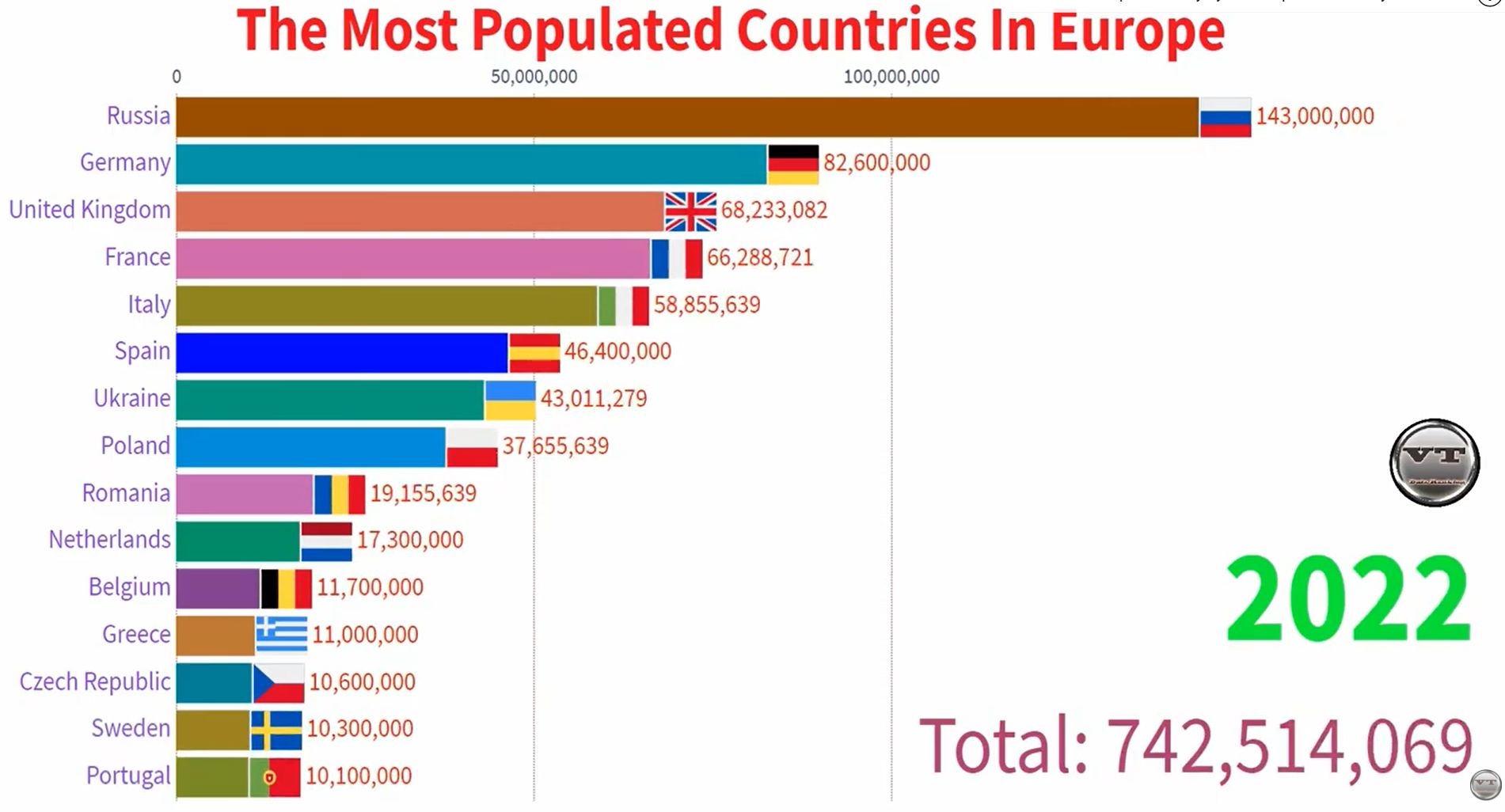
Source: VT Data Ranking, YouTube
In the ten years after 1991 the population decreased at a fairly steady rate for two main reasons - more people were dying due to a fall in living standards, and, at the same time birth rates were also falling dramatically. No doubt economic uncertainty was a major factor in this as people would be less likely to have more children if they couldn't afford to feed them.
During the last decade the population of Russian cities has increased as more people move from the countryside to the cities in search of better employment. Nearly ¾ of Russians now live in urban areas.
Economy
From an economic point of view, it is fair to say that Russia is in fact one of the poorest countries in Europe.
More than one third of Russia's total GDP comes from its massive oil and natural gas reserves (from Siberia). This is the main source of the country's wealth and it makes Russian people richer than they otherwise would be. Other than oil and gas, Russia doesn't produce any important goods.
Paylab analysed the data of GDP per capita across all European countries. Luxembourg has the highest GDP in Europe with $114482, compared with a GDP of $27044 for Russia.
Many of the smaller Eastern European countries - such as Croatia, Czech Republic, Estonia, Hungary, Latvia, Poland, Romania, Slovakia, Slovenia and Hungary - all have a higher GDP per capita than Russia.
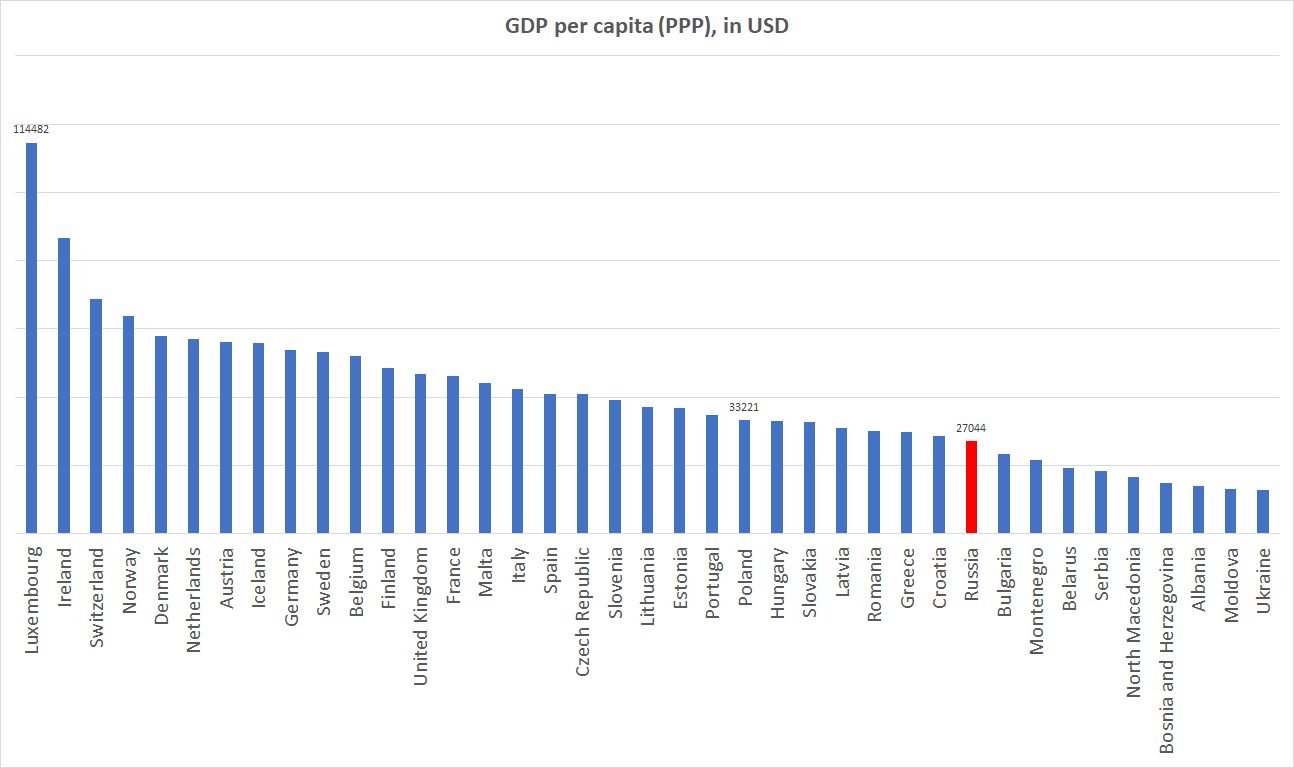
Source: https://en.wikipedia.org/wiki/List_of_countries_by_GDP_(PPP)_per_capita
Paylab also looked at the average gross monthly salary across the countries of Europe. Russia comes in as the fourth lowest, despite being one of the 'biggest' countries. Only Ukraine, Moldova and Belarus have lower salaries. The Swiss enjoy the highest average monthly salaries in Europe.
All of the other Eastern European countries - Albania, Bosnia and Herzegovina, Bulgaria, Czech Republic, Croatia, Estonia, Hungary, Latvia, Montenegro, North Macedonia, Poland, Romania, Serbia, Slovakia and Slovenia - enjoy a higher average monthly salary than the Russian people. Despite Russia thinking it is a great and wealthy country.
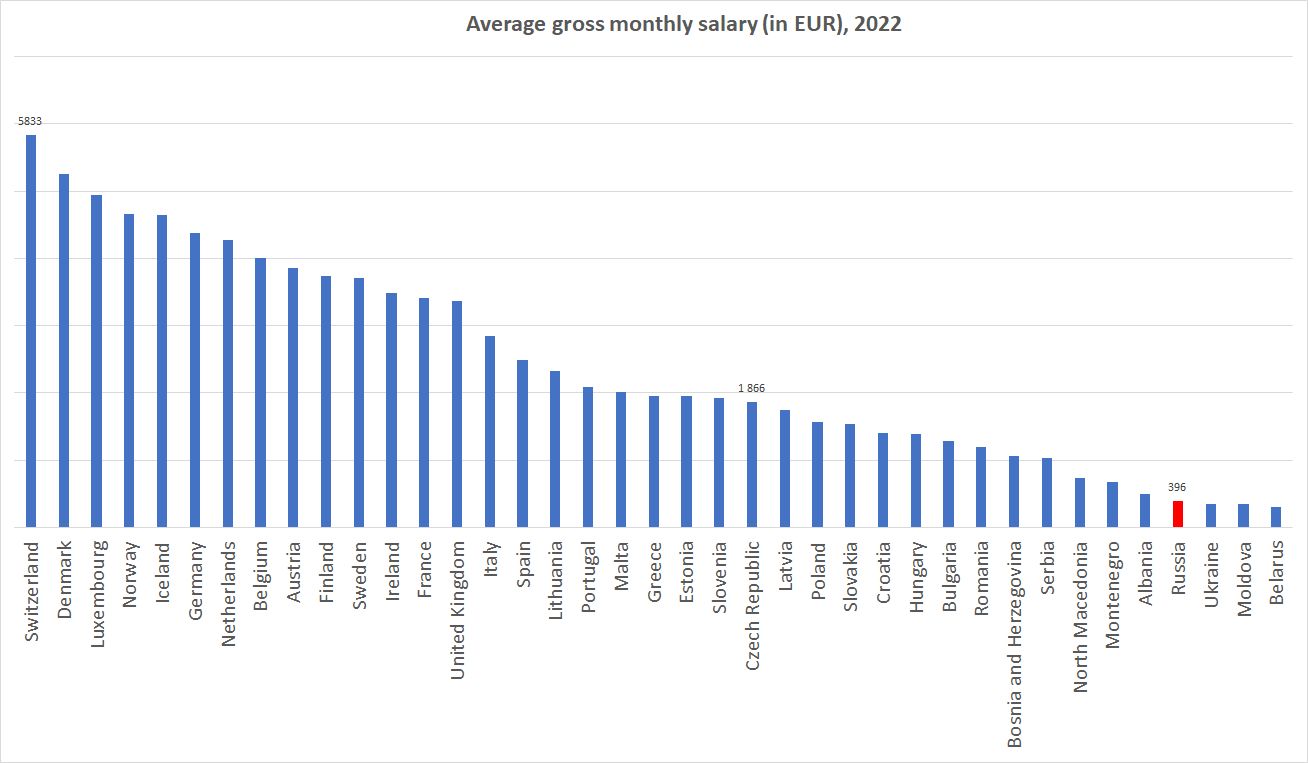
Source: Paylab.com
Nobel prizes are a series of awards given in the fields of physics, chemistry, medicine, literature, and peace. They are awarded to people "who have conferred the greatest benefit to humankind" (Alfred Noble). The number of Nobel prize laureates any country has is no doubt influenced by the quality of the education system in that country, the experience of society, the political landscape and of course democracy.
Each year, academics, university professors, scientists, previous winners and others all submit nominations. If we take a look at the number of Nobel prize laureates across the world, it is interesting to note that Russia (including the Soviet Union) has the same number of prizes as Sweden (32) but Sweden has 14.5 times less people than Russia! And there are lots of other countries with many more laureates than Russia.
Conclusions
In summary, it would be fair to say that Russia is a major global power in terms of its reach, its nuclear weapons and its export of minerals. But from every other point of view - like quality of life, standard of living and wealth of the nation - they are actually very ordinary (and some may say poor) and lacking all elements of a developed superpower.

